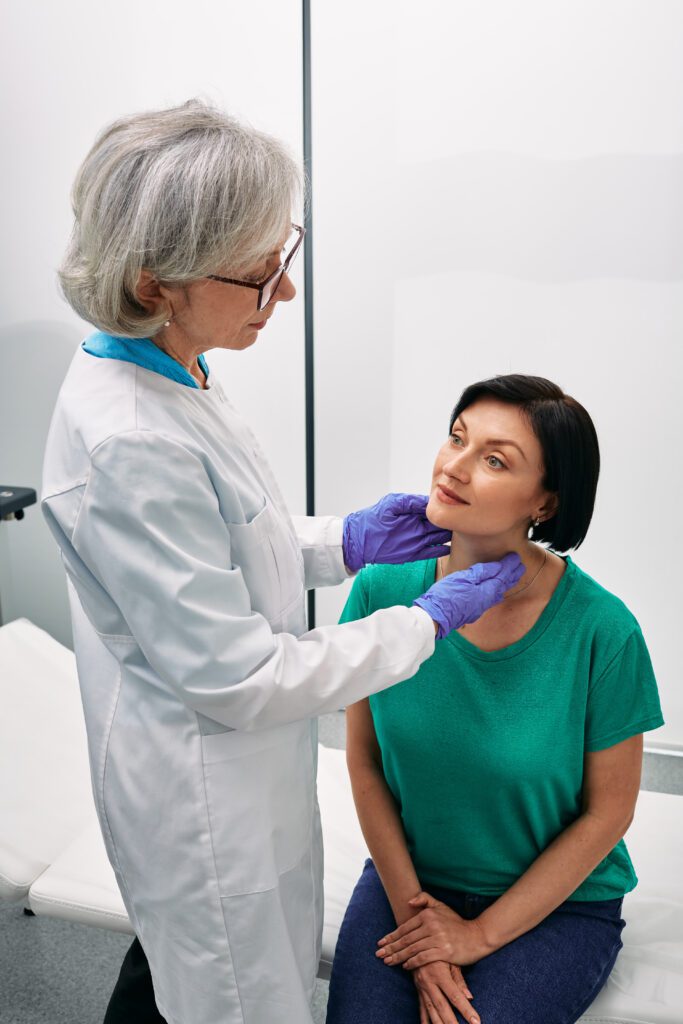The United States is home to more than 14 million people who suffer from Hashimoto’s disease. This disease is a type of autoimmune disorder that affects the thyroid gland. It is located in the throat, and it is responsible for certain hormonal functions, metabolism, and more.
Hashimoto’s disease is also known as Hashimoto’s thyroiditis. Diagnosis is often a difficult process, as the symptoms are very characteristic of high stress or aging. However, if left untreated, the consequences can impact your quality of life and even put you at risk for other diseases. It’s important to get treatment, but it’s even more important to get the right treatment. Discover how to talk to your doctor about Hashimoto’s disease and how to find a treatment that not only manages the disease but promotes the highest quality of life.
What Is Hashimoto’s Disease?
Hashimoto’s disease is a unique type of autoimmune disorder, which causes the body’s immune system to attack itself.
It is not known why most autoimmune diseases arise. Sometimes, they may arise from a certain trigger that causes the body’s immune system to see itself as a threat that must be attacked. In the case of Hashimoto’s disease, the immune system targets the thyroid gland as a threat and subsequently attacks it.
Hashimoto’s disease is especially common among middle-aged women. However, this disease can actually occur in both men and women of any age. This is a disease that progresses quite slowly.
For that reason, many people with the disease don’t even know that they have it until they start to exhibit certain symptoms.
What Are the Symptoms of Hashimoto’s Disease?
There are many symptoms of Hashimoto’s disease and they tend to appear quite slowly but also tend to worsen with time. A few of the most common symptoms include fatigue, muscle weakness, and joint pain. People with this condition may also feel cold more often than most people, even if the surrounding environment is relatively warm.
People with this condition may also lose hair, have brittle nails, have parts of their body swell such as the tongue or face, and so on. Hair loss and brittle nails are characteristic of hormonal changes. This makes sense since Hashimoto’s disease attacks the thyroid gland, which is very important for certain hormonal functions.
For that reason, women with this condition may experience menstrual irregularities such as absent or very heavy periods. Depression is also common due to changes in hormones.
What Causes Hashimoto’s Disease?
As mentioned before, researchers do not know why certain autoimmune diseases occur, and this also applies to Hashimoto’s disease. Some believe that there are genetic factors that come into play in the development of this condition. However, others argue that environmental factors are more likely to cause this condition.
For example, getting a cold may trigger this disease. The immune system may get confused with a cold pathogen and the natural antibodies inside the body. If this happens, the immune system may believe that the body’s own antibodies are foreign.
Thus, the body will start to attack itself. This is just a theory as to why autoimmune conditions like Hashimoto’s disease may happen in some people, but the exact cause is not yet known.
How Do Doctors Diagnose Hashimoto’s Disease?
Before you can understand the treatment options for Hashimoto’s disease, you will first need to get the condition diagnosed by a medical professional. The first step to getting a diagnosis is to test your thyroid function. In particular, you will be tested for the levels of your thyroid stimulating hormone (TSH), T3, and T4, as well as other hormones.
If the TSH levels are unusually high, this means that you have hypothyroidism. This is a sign that you may have Hashimoto’s disease. Antibody tests may also be necessary to see whether you have this disease.
The symptoms you exhibit will also be a contributing factor to your diagnosis.
How Does Nutrition Affect Hashimoto’s Disease?
Nothing, and that includes changing your diet, can cure Hashimoto’s disease. However, changing your diet in a particular way may improve the symptoms of the disease in some people. For example, some find that going gluten-free, avoiding dairy, or limiting their diet to anti-inflammatory foods can help their symptoms.
In some cases, a change of diet may not help a person at all. It all depends on the individual, but it is important to have a healthy diet so that your overall health has a good foundation.
How Do Doctors Treat Hashimoto’s Disease?
While there is no cure for this disease, there are a few treatment options to consider. Lifestyle changes are important. If you don’t eat well or exercise, your health will never improve.
Of course, it can be difficult to exercise when you always feel tired or are in pain. However, basic exercises such as small walks or stretches can help. You can also consider hormone replacement therapy.
Hormone Therapy for Hashimoto’s Disease
Some find that hormone replacement treatment for Hashimoto’s disease is very helpful for relieving the symptoms. T-4 hormone replacement therapy is especially helpful since it can kickstart your thyroid gland’s function.
The downside is that this treatment is lifelong. You can also try T-3 hormone replacement therapy to see if that works better for you.
Finding the Right Care forHashimoto’s Disease
Finding the right care for Hashimoto’s disease can be difficult ifyou don’t know where to start. EvexiPEL-certified providers can help you because they are trained in diagnosing and treating various thyroid disorders, including Hashimoto’s disease.
If you want to learn more about how to treat your Hashimoto’s thyroiditis or another thyroid condition, click here.







